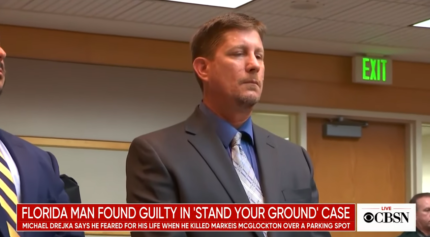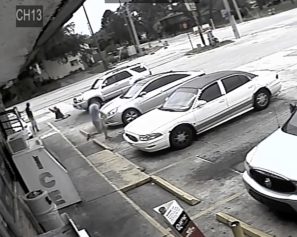
State Rep. Ras Smith
In 2012, Florida teen Trayvon Martin became a poster-child for the state’s contested Stand Your Ground law, which granted residents like neighborhood watchman George Zimmerman the authority to use lethal force to “defend himself” in certain situations.
With proposals for similar legislation popping up in states across the country, Black lawmakers are now fighting to ensure that more of these laws don’t pass — and that there are no more Trayvon Martins.
As the Iowa State Legislature weighed the enactment of a Stand Your Ground law for the 11th year in a row, Democrat State Rep. Ras Smith hoped he might put a stop to the considerations of his Republican colleagues. Smith, who represents a portion of Waterloo, Iowa, that holds the state’s largest Black population, made his case against the contested measure early last month when he took the floor and changed out of his dark tailored suit into a gray hoodie and bright red headphones.
“It’s been stated that [HF517] was crafted in a way that applies to all Iowans equally,” Smith said. “While I agree that we are all created equal, I do not agree that all Iowans are treated equally — or protected equally.”
Like many other Black legislators, the Iowa Democrat believes that Stand Your Ground laws have disproportionately justified the shootings of Black people. To test the moral compass of his fellow lawmakers on the matter, Smith turned himself into a “threat [they] can perceive every day.”
“My colleagues say they respect me,” he told The Trace, an independent news org covering all-things-guns in the U.S. “So, I wanted to show them what I wear on a daily basis and to ask are they willing to pass legislation that could negatively impact my life?”
The answer to the question was a resounding “yes.” Smith’s demonstration wasn’t enough to win over the Republican-controlled legislature, as the bill was passed on April 13 and later signed into law by Gov. Terry Branstad, according to the new site.
For four years, between 2012 and 2016, every state that tried to pass Stand Your Ground measures failed, a result of Martin’s fatal shooting. That’s no longer the case, however, as Black Democrats’ power to influence legislation that directly impacts their constituents has diminished greatly.
“The states that passed Stand Your Ground early on were low-hanging fruit,” Christopher Mooney, the Director of the Institute of Government and Public Affairs at the University of Illinois told The Trace. “As Republicans gain strength in states like Missouri and Iowa, the odds of it passing go up.”
So far, 33 states have enacted some form of Stand Your Ground law, while 13 states have pending legislation to strengthen or enact said laws, according to American Bar Association data. Defenders of the measure argue that it simply protects the right to self defense, but critics say it has increasingly protected people who shoot and kill minorities. A 2013 study conducted by the Urban Institute also showed that in “stand your ground” cases where the shooter is white and the victim is Black, homicides were 281 percent more likely to be ruled justified than if the roles were reversed.
“If you’re white and not learning the value of minorities, then you’re reacting to your own narrow frame of reference, which is usually soundbites on TV about criminals and drug dealers,” said Representative Ako Abdul-Samad (D), one of many Black lawmakers who opposed the self-defense law. “If that’s all you have to go on, you will react with fear.”
Black legislators also attribute the resurgence of Stand Your Ground laws to race-based segregation, arguing that the lack of diversity in both rural and suburban communities breeds irrational fear and ignorance of people who look different.
Representative Janet Cruz, the Democratic minority leader in the Florida House, pointed out that what the disputed law means to someone in northern Florida could be totally different from what it means to someone from Tampa.
“Although someone in a rural area may see Stand Your Ground as a tool to ensure they’re able to keep their family safe, for many in the urban parts of Florida, they see it as a threat to their family,” Cruz said.
Rep. Smith didn’t respond to request for comment.


